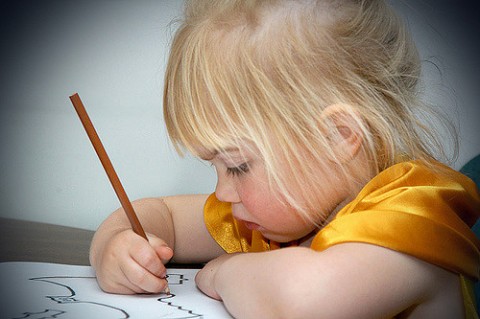Daisy Hill ELC would like to respectfully acknowledge the Yugambeh people, the Traditional Owners of the lands on which we live. We also recognise those whose ongoing effort to protect and promote Aboriginal and Torres Strait Islander cultures will leave a lasting legacy for future Elders and leaders.
Welcome to another month.
Firstly, we would like to extend a warm welcome to our new families that have recently joined us. We are so excited to be part of your child's journey creating wonderful memories that will be remembered for years to come. Everyone has settled well into their classrooms and a lot of exciting experiences are happening all over the centre. We trust that we will keep moving forward in a positive direction for another wonderful year.We aim to offer high quality programs for children, balancing child led experiences and intentional teaching by our educators. We deliver engaging experiences through play with children.
I have been having a few similar conversations with families of late in regards to scaffolding children's learning and ensuring that children are well prepared learners as they move towards prep programs. Trust us, we do.
We are advocates of l earning through play. We are regulated by the Early Years Learning Framework and Kindergarten program and this is reflected in our practices. Play is the foundation for children's well-being and emotional strength. Play allows children the opportunity to showcase their outstanding ability for exploration, imagination, creative ability and development.
Play is fun!
Asthma
If your child has asthma and requires ongoing treatment at the centre they will require an Asthma Plan. If they are keeping their Ventolin and spacer here at the service, the Ventolin and spacer must be stored in a clear labelled container (e.g. lunch box style). This will minimise the time it takes for us to sort through children's Ventolin and spacers to find the one we need.
Harmony Day is held each year on 21 March. It's a day to celebrate our cultural diversity. It's about inclusiveness, respect and a sense of belonging for everyone. These celebrations create opportunities for all of us to think, talk about and recognise how our differences make Australia a great place to live.
We will be taking part in centre based activities that we feel are inclusive to all Australians, please feel free to wear or represent your cultural heritage.
What Is Separation Anxiety?
In early childhood, crying, tantrums, or clinginess are healthy reactions to separation and a normal stage of development. Separation anxiety can begin before a child's first birthday, and may pop up again or last until a child is four years old. However, both the intensity level and timing of separation anxiety vary tremendously from child to child. A little worry over leaving a parent is normal, even when your child is older. You can ease your child's separation anxiety by staying patient and consistent, and by gently but firmly setting limits.
How to ease separation anxiety
Practice separation. Leave your child with a caregiver for brief periods and short distances at first. As your child gets used to separation, you can gradually leave for longer and travel further.
Develop a quick "goodbye" ritual. Rituals are reassuring and can be as simple as a special wave through the window or a goodbye kiss. Keep things quick, though, so you can:
Leave without fanfare. Tell your child you are leaving and that you will return, then go—don't stall or make it a bigger deal than it is.
Try not to give in. Reassure your child that they will be just fine—setting consistent limits will help your child's adjustment to separation.
For more information please speak to your child/rens teacher. Separation anxiety is normal and you are not the first or last to experience it, you are not alone and you are doing a great job



